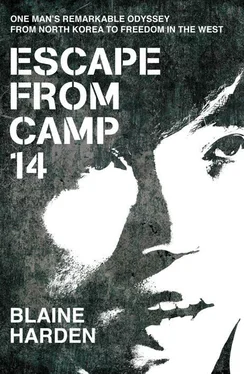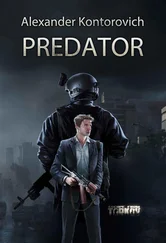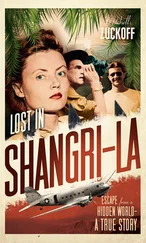He also learned to use the stems of foxtail grass to spear grasshoppers, longheaded locusts and dragonflies, which he roasted over a fire in late summer and autumn. In the mountain forests, where groups of students were often sent to gather wood, Shin ate wild grapes, gooseberries and Korean raspberries by the fistful.
During winter, spring and early summer, there was much less to eat. Hunger drove him and his boyhood friends to try strategies that older prisoners in the camp claimed could ease the discomfort of an empty stomach. They ate meals without water or soup, under the theory that liquid accelerated digestion and quickened the return of hunger pangs. They also tried to refrain from defecating, believing that this would make them feel full and less obsessed with food. An alternative hunger-fighting technique was to imitate cows, regurgitating a recent meal and eating it again. Shin tried this a few times, but found it didn’t ease his hunger.
The summertime, when children were sent to the fields to help plant and weed, was peak season for rats and field mice. Shin remembers eating them every day. His happiest, most contented childhood moments were when his belly was full.
The ‘eating problem’, as it’s often called in North Korea, is not confined to labour camps. It has stunted the bodies of millions across the country. Teenage boys fleeing the North in the past decade are on average five inches shorter and weigh twenty-five pounds less than boys growing up in South Korea. [7] Author interview with Chun Jung-hee, head nurse at Hanawon resettlement centre in South Korea. The government-funded centre has measured and weighed North Korean defectors since 1999.
Mental retardation caused by early childhood malnutrition disqualifies about a quarter of potential military conscripts in North Korea, according to the National Intelligence Council, a research institution that is part of the US intelligence community. Its report said hunger-caused intellectual disabilities among the young were likely to cripple economic growth even if the country opened to the outside world or united with the South.
Since the 1990s, North Korea has been unable to grow, buy or deliver enough food to feed its population. Famine in the mid-1990s killed perhaps a million North Koreans. A similar death rate in the United States would claim about twelve million lives.
The North’s food disaster eased in the late 1990s as the government agreed to receive international food aid. The United States became North Korea’s largest aid donor while remaining its most demonized enemy.
Every year North Korea needs to produce more than five million tons of rice and cereal grain to feed its twenty-three million people. Nearly every year it falls short, usually by about a million tons. With long winters and high mountains, the country lacks arable land, denies incentives to farmers and cannot afford fuel or modern farm equipment.
It squeaked by for years without a food catastrophe thanks to subsidies from Moscow, but when the Soviet Union collapsed, the subsidies ended and North Korea’s centrally planned economy stopped functioning. There was no free fuel for its aging factories, no guaranteed market for its often-shoddy goods and no access to cheap, Soviet-made chemical fertilizers on which state farms had become dependent.
For several years, South Korea helped fill the gap, giving Pyongyang half a million tons of fertilizer annually as part of its ‘Sunshine Policy’ to try to ease North–South tensions.
When new leadership in Seoul cut off the free fertilizer in 2008, North Korea tried to do nationally what it has been doing for decades in its labour camps. The masses were told to make toibee , a fertilizer in which ash is mixed with human excrement. In recent winters, frozen human waste has been chipped out of public toilets in cities and towns across the country. Factories, public enterprises and neighbourhoods have been ordered to produce two tons of toibee , according to Good Friends, a Buddhist charity with informants in North Korea. In the spring, it was dried in the open air before being transported to state farms. But organic fertilizers have not come close to replacing the chemicals that state farms depended on for decades.
Sealed away behind an electrified fence during the 1990s, Shin was unaware that millions of his countrymen were desperately hungry.
Neither he nor his parents (as far as Shin knew) had heard that the government was struggling to feed the army or that people were dying of starvation in their apartments in North Korean cities, including the capital.
They did not know that tens of thousands of North Koreans had abandoned their homes and were walking into China in search of food. Nor were they beneficiaries of the billions of dollars’ worth of food aid that poured into North Korea. During those chaotic years, as the basic functioning of Kim Jong Il’s government stalled, think-tank experts in the West were writing books with doomsday titles such as The End of North Korea.
The end was nowhere in sight inside Camp 14, which was self-sufficient except for occasional trainloads of salt.
Prisoners grew their own corn and cabbage. As slave workers, they produced low-cost vegetables, fruit, farmed fish, pork, uniforms, cement, pottery and glassware for the crumbling economy outside the fence.
Shin and his mother were miserable and hungry during the famine, but no more than they were accustomed to. The boy carried on as before, hunting rats, filching his mother’s food and enduring her beatings.
The teacher sprang a surprise search. He rifled through Shin’s pockets and those of the forty other six-year-olds in his class.
When it was over, the teacher held five kernels of corn. They all belonged to a girl who was short, slight and, as Shin remembers, exceptionally pretty. He doesn’t recall the girl’s name, but everything else about that school day in June 1989 stands out in his memory.
The teacher was in a bad mood as he began searching pockets, and when he found corn he erupted.
‘You bitch, you stole corn? You want your hands cut off?’
He ordered the girl to the front of the class and told her to kneel. Swinging his long wooden pointer, he struck her on the head again and again. As Shin and his classmates watched in silence, lumps puffed up on her skull, blood leaked from her nose and she toppled over onto the concrete floor. Shin and several other classmates picked her up and carried her home to a pig farm not far from the school. Later that night, she died. Subsection three of Camp 14’s third rule said, ‘Anyone who steals or conceals any foodstuffs will be shot immediately.’
Shin had learned that teachers usually did not take this rule seriously. If they found food in a student’s pocket, they would sometimes deliver a couple of desultory whacks with a stick. More often they would do nothing. It was common for Shin and other students to take a chance. The pretty little girl was just unlucky, as Shin saw it.
He had been trained by guards and teachers to believe that every time he was beaten, he deserved it — because of the treasonous blood he had inherited from his parents. The girl was no different. Shin thought her punishment was just and fair, and he never became angry with his teacher for killing her. He believed his classmates felt the same way.
At school the next day, no mention was made of the beating. Nothing changed in the classroom. As far as Shin was aware, the teacher was not disciplined for his actions.
Shin spent all five years of primary school in class with this same teacher, who was in his early thirties, wore a uniform and carried a pistol in a holster on his hip. In breaks between classes, he allowed students to play ‘rock, paper, scissors’. On Saturdays, he would sometimes grant children an hour or two to pick lice out of each other’s hair. Shin never learned his name.
Читать дальше












